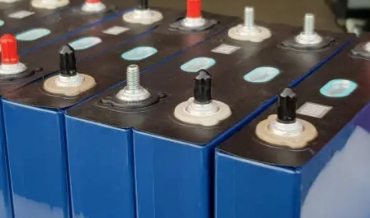Lithium-ion batteries have their own unique and specific HS code that differentiates them from other batteries. The HS code helps in the identification and easy clearance of the lithium-ion battery from customs. This code is universal, although some countries may add extensions to the codes but the root HS Code, which is usually 6 digits in number, remains the same globally.
The HS Code stands for Harmonised System Code. It’s a universal method of classifying goods in international trade. You can think of it as a global dictionary of products. Instead of calling something “battery” in English, “batería” in Spanish, or “akku” in German, everyone just uses the code. That way, there is no confusion at borders.

This system is managed by the World Customs Organisation (WCO), and it is used by over 200 countries. Each product type has its own HS Code, and it’s these numbers that determine how much duty you will pay, what restrictions apply, and whether customs will let your goods in smoothly
HS Code for Inverter Battery Lithium Ion
The HS code for inverter battery lithium ion is 8507.60. This is the unique code that is used in identifying lithium-ion batteries in international trade. This code serves as a unique identifier for all lithium batteries globally for easy customs clearance.
However, some countries like the US, China, and the EU add extensions to this code, making theirs 8507.60.00. Nevertheless, the root HS Code for lithium-ion batteries remains 8507.60, irrespective of the extension.
Lithium iron phosphate battery HS Code
The lithium iron phosphate battery HS Code is 8507.60. This means that if you want to import a lithium iron phosphate battery, the correct HS code to use is 8507.60. This code is globally recognised for all international trade involving lithium iron phosphate batteries.
In all, customs usually classifies all lithium-based rechargeable batteries under HS Code 8507.60, whether it is a lithium iron phosphate battery or a lithium ion inverter battery.
Why Does HS Code Matter So Much?
Some people underestimate it and just throw in any random code when filling shipping documents. That’s one of the biggest mistakes you can make. Here is why HS Code matters:
1. Customs Clearance
Customs officers rely on HS Codes. If you put the wrong one, your shipment could be delayed.
2. Import Duty and Taxes
The tax you pay depends on the HS Code. Misclassify your goods, and you might end up paying more than necessary or get slapped with fines for under-declaring.
3. Trade Data
Governments use HS Codes to track imports and exports. This helps them know how much of a product is moving in and out.
4. Legal Compliance
Some products, especially batteries, are restricted due to safety risks. The HS Code alerts customs if your product falls under such rules.
In short, getting the HS Code wrong can cost you money, time, and peace of mind.
Why Lithium-ion Batteries Need Special Attention
Unlike normal household goods, lithium-ion batteries come with extra rules. That’s because they are considered hazardous when transported in bulk. If damaged or improperly handled, they can overheat, catch fire, or even explode.
This is why many shipping companies, airlines, and ports are extra strict with them. When customs officers see the HS Code 8507.60, they immediately know the product needs to follow specific safety procedures.
So, the HS Code isn’t just a formality here; it’s part of what keeps international trade safe.
Common Types of Rechargeable Lithium-ion Batteries
Not all lithium-ion batteries are the same. If you look around, you will see them in almost every device, but the type depends on the use:
- Consumer electronics batteries, which are found in phones, laptops, tablets, and cameras.
- Power storage batteries which are used in solar systems, inverters, and backup storage.
- EV batteries, which are used for powering electric vehicles.
- Industrial batteries which are used in heavy-duty machinery or large-scale energy storage.
No matter the use, they all fall under HS Code 8507.60, but some countries may have more detailed codes for EV batteries or large storage batteries.
How to Find the Right HS Code for Your Country
The HS Code system is global, but each country can extend it. For example:
- United States: Uses the HTS (Harmonised Tariff Schedule), which is based on HS but with more digits.
- European Union: Uses the TARIC Code, again based on HS but with country-specific details.
- India, China, and others: Use HS with local sub-classifications.
So, while the core is 8507.60, you should check your local customs website or ask your freight forwarder for the exact extended code. That way, you won’t run into problems.
Conclusion
The HS Code for rechargeable lithium-ion batteries, including lithium iron phosphate batteries, is 8507.60. This single code is what makes international trade smoother, ensuring customs officers, importers, and exporters all speak the same “language” when it comes to classification.
Whether you are shipping inverter batteries, EV batteries, or storage batteries, getting the HS Code right is not just about avoiding delays; it’s about compliance, safety, and saving yourself from unnecessary costs. Since some countries extend the HS Code with extra digits, it’s always wise to confirm with your local customs office or freight agent before shipping.
So, if you are planning to import or export lithium-ion batteries, remember: your success in trade often starts with something as simple, but powerful, as putting down the correct HS Code.